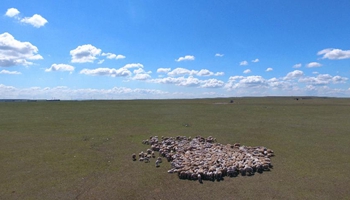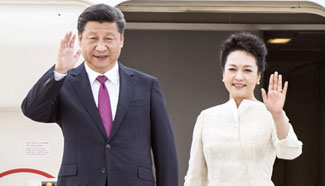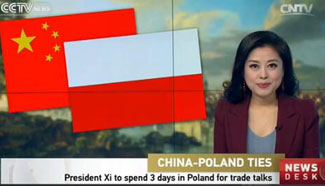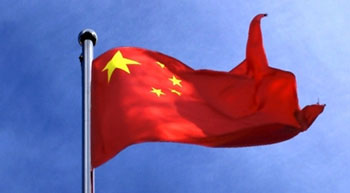BEIJING, June 20 (Xinhua) -- China's central bank on Monday pumped more money into the market to provide liquidity.
The People's Bank of China (PBOC) conducted seven-day reverse repurchase agreements (repo) worth 170 billion yuan (around 25 billion U.S. dollars), a process by which central banks purchase securities from banks with an agreement to resell them in the future.
The reverse repos were priced to yield 2.25 percent, unchanged from Friday's injection of 40 billion yuan, according to a PBOC statement.
Reverse repos worth 110 billion yuan matured on Monday, so the central bank has effectively injected 60 billion yuan into the market.
In Monday's interbank market, the benchmark overnight Shanghai Interbank Offered Rate (Shibor), which measures the cost at which Chinese banks lend to one another, rose by 0.5 basis points to 2.01 percent.










